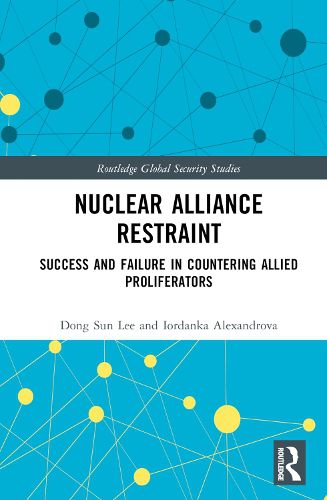Readings Newsletter
Become a Readings Member to make your shopping experience even easier.
Sign in or sign up for free!
You’re not far away from qualifying for FREE standard shipping within Australia
You’ve qualified for FREE standard shipping within Australia
The cart is loading…






This book examines why powerful states have varying success in restraining less-powerful allies from acquiring nuclear weapons, based on a broad range of historical case studies.
The outcomes of nuclear alliance restraint primarily depend on two structural factors: the number of superpowers in the global system and the geographical distance between patrons and clients. Through in-depth case studies of South Korea, North Korea, China, and Pakistan and a comprehensive analysis of 14 historical episodes, the book demonstrates that restraint succeeds when there are two superpowers, with one trying to rein in a distant ally. Conversely, restraint often fails with a single superpower in the system or when nuclear aspirants are close to their patrons. This study has important implications for current nonproliferation efforts since it suggests that a bipolar world with the United States and China as superpowers would enhance counterproliferation effectiveness, reducing nuclear proliferation risks. In addition, an inducement-centered approach adopted early on would be most effective for these superpowers in restraining their allied proliferators.
This book will be of much interest to students of nuclear proliferation, foreign policy, security studies, and international relations.
$9.00 standard shipping within Australia
FREE standard shipping within Australia for orders over $100.00
Express & International shipping calculated at checkout
This book examines why powerful states have varying success in restraining less-powerful allies from acquiring nuclear weapons, based on a broad range of historical case studies.
The outcomes of nuclear alliance restraint primarily depend on two structural factors: the number of superpowers in the global system and the geographical distance between patrons and clients. Through in-depth case studies of South Korea, North Korea, China, and Pakistan and a comprehensive analysis of 14 historical episodes, the book demonstrates that restraint succeeds when there are two superpowers, with one trying to rein in a distant ally. Conversely, restraint often fails with a single superpower in the system or when nuclear aspirants are close to their patrons. This study has important implications for current nonproliferation efforts since it suggests that a bipolar world with the United States and China as superpowers would enhance counterproliferation effectiveness, reducing nuclear proliferation risks. In addition, an inducement-centered approach adopted early on would be most effective for these superpowers in restraining their allied proliferators.
This book will be of much interest to students of nuclear proliferation, foreign policy, security studies, and international relations.